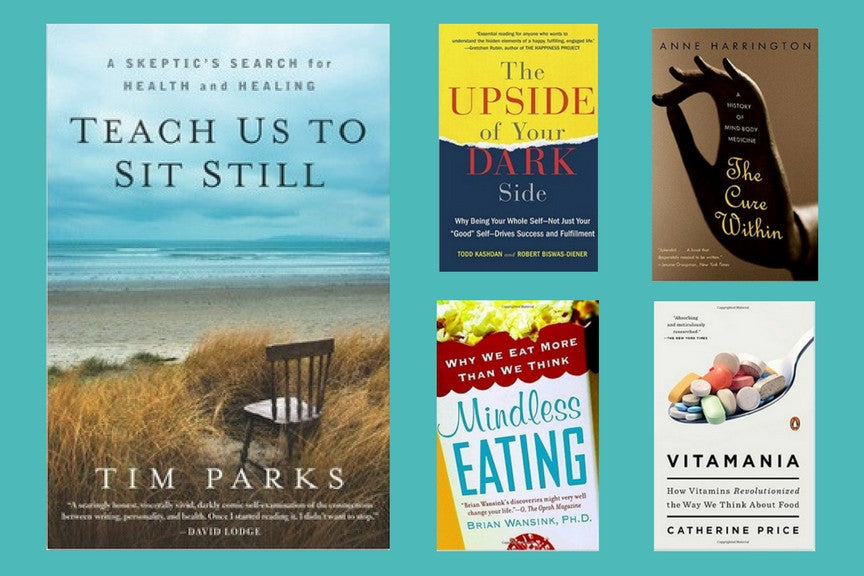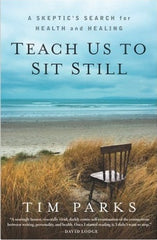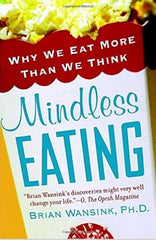
I was recently browsing the health section of my favourite book store, looking for a good book for a friend who recently discovered that she has a serious chronic disease and faces a lengthy period of medical treatments. I wanted to find something that would inspire and uplift her, something with credible and useful information, and something that wasn’t too taxing for her to read.
To be honest, I was shocked by what I saw. There was just so much nonsense on the shelves – Books written by people who are marketed as experts simply because they are famous, books espousing the benefits of diets that have no scientific foundation, and worse, books that were scientific but presented selected or outdated research to make their argument. If not for the last few years, in which time I have learned a great deal about finding experts that I can trust, I have no doubt that I would have wasted my money on something filled with half-truths and misinformation – and what’s worse, I would have been passing it on to someone else. I left empty handed.
These days, when I’m looking for a good health book, there are four things I look at:
1. Who is the author?
Is the book written by a credible expert and if it isn’t, then has the author done their research by going to the original source of the information through interviews or reading published peer-revised papers? While it’s often the personal and inspiring success stories that I want to read, sometimes well-meaning authors overly exaggerate their journey to wellness, or imply that because one thing worked for them, it will auto-“magically” also work for everyone else. I’m also wary of the “MD” and “PhD” label that get brandished after author’s names to boost credibility. Just because someone has these official sounding qualifications, doesn’t mean they are credible. Instead, I look at their job title. Are they affiliated with a world-leading academic organisation? Often that’s a good sign.
2. Where does the information come from?
I skip to the book’s reference section at the back. If it’s extensive, then I’m probably in safe hands. But I also do a quick scan of those references and make sure the author is mostly citing interviews that they have done themselves or academic papers, rather than second or third hand sources. (Read my blog post "This is Why You Shouldn’t Believe Everything About Your Health” for an example of how health myths spread like wildfire.)
3. Beware of the “Quick Fix”
On my road to recovering from an autoimmune disease, I’ve learned that getting better isn’t "quick" and while the steps that I took were often simple, they’re not always easy. The moment I read anything that promises “30 days to…” or “the 10-week solution for…” or “the miracle answer to,” is the moment that I know I’m probably being sold something that is unlikely to result in lasting or meaningful change. I know it would be wonderful if it only took a month to look like, and/or have the lifestyle of the gorgeous person on the front cover of the book, but the odds are, I won’t. (I’ll write more about why quick fixes don’t work in the new year.)
4. Beware of the “one thing”
Often books will tell you that there’s just one reason that you’re overweight, depressed, sick, or whatever else. They’ll tell you that it’s a macro- or micro-ingredient in your diet, or that there’s a simple trick or “secret” that you can learn by reading the book. But in the same way that holism teaches us that we cannot study the forest by looking at an individual tree, we cannot just tend to one minuscule aspect of our life and expect that our whole health ecosystem will suddenly be in balance. Good health means nourishing each of the components in the system that are dependent on one another. Whether it’s diet, sleep, stress, movement, relationships, your mindsets and beliefs, your emotions, or other triggers in the world-around you, there’s so much more to good health than “the one thing…”
With all that said, here are some of the health books that I’ve read this year that have entertained me, left an impression, and most importantly, changed me. I'd also love to know what you've read this year that has left a lasting impression. Please feel free to let me know in the comments below.
Teach Us to Sit Still: A Skeptic's Search for Health and Healing, by Tim Parks
 The description:
The description:“Bedevilled by a crippling condition which nobody could explain or relieve, he confronts hard truths about the relationship between the mind and the body, the hectic modern world and his life as a writer. Teach Us To Sit Still is the visceral, thought-provoking and improbably entertaining story of Tim Parks' quest to overcome ill health.”
My take:
As an Australian journalist in her mid-30s, I would never have predicted that one of the best books I read in 2016 would be about the prostate problems of a middle-aged Englishman, working in Milan as a lecturer in literary translation. But the honest, amusing, and often poetic writing style that Parks adopts drew me in. I completely identified with his fruitless search for healing in the conventional medical system. With nowhere else to turn, he reluctantly persists with meditation and in doing so, he eloquently explores the mind-body-health connection. This is not a book written by a scientist, or a meditation expert. It’s written by a thoughtful, honest and eloquent writer’s writer, who makes a mundane and sometimes awkward health story compelling and thought-provoking.
Mindless Eating: Why We Eat More Than We Think, by Brian Wansink

The description:
“In this illuminating and groundbreaking new book, food psychologist Brian Wansink shows why you may not realize how much you’re eating, what you’re eating–or why you’re even eating at all. Brian Wansink is a Stanford Ph.D. and the director of the Cornell University Food and Brand Lab. He’s spent a lifetime studying what we don’t notice: the hidden cues that determine how much and why people eat. Using ingenious, fun, and sometimes downright fiendishly clever experiments like the “bottomless soup bowl,” Wansink takes us on a fascinating tour of the secret dynamics behind our dietary habits.”
My take:
Because science is so complicated, it’s rare that the takeaways from research are simple, clear, easy, and impactful all at once. My family and I have adopted many of the strategies in this book, and also in Wansink’s other book Slim by Design: Mindless Eating Solutions For Everyday Lives. I’m happy to say that they have had a game-changing, positive influence on what we eat. My two favourite strategies are keeping a bowl full of fresh fruit and vegetables on the kitchen bench and keeping any junk food that finds its way into our house in the laundry. You can listen to my podcast interview with Wansink here.
 The description:
The description:
“Happiness experts have long told us to tune out our negative emotions and focus instead on mindfulness, positivity, and optimism. Researchers Todd Kashdan and Robert Biswas-Diener, disagree. Positive emotions alone are not enough. Anger makes us creative, selfishness makes us brave, and guilt is a powerful motivator. The real key to success lies in emotional agility. Drawing upon extensive scientific research and a wide array of real-life examples, The Upside of Your Dark Side will be embraced by business leaders, parents, and everyone else who’s ready to put their entire psychological tool kit to work.”
My take:
I’m the first to admit that I tend towards wanting to be positive, happy and upbeat. Some of the books that I’ve read in the past such as The How of Happiness by Sonja Lyubomirsky and Love 2.0 by Barbara Fredrickson have certainly reinforced my understanding of the link between positive emotions and good health, but often this gets me into a conundrum when I’m feeling low. I try to pick myself up, or “snap out of it.” Reading this book gave me a different perspective on the emotions that I’ve always wanted to avoid such as anger, sadness, grief, and fear. It explained how these emotions serve an important purpose in my life.
Vitamania: Our Obsessive Quest For Nutritional Perfection, by Catherine Price
 The description:
The description:
“In Vitamania, award-winning journalist Catherine Price takes readers on a lively journey through the past, present and future of the mysterious micronutrients known as human vitamins – an adventure that includes poison squads and political maneuvering, irradiated sheep grease and smuggled rats. Part history, part science, part personal exploration, Price's witty and engaging book reveals how vitamins have profoundly shaped our attitudes toward eating, and investigates the emerging science of how what we eat might affect our offspring for generations to come.”
My take:
I’ve always thought of herbal medicines and dietary supplements as being natural, safe and health promoting, but I was stunned to learn that scientists still don’t fully understand all the nuances of what vitamins do in our bodies, or how they do it. While most supplements are not usually harmful, it turns out that there’s little proof that they actually work. Before I read this book I had also imagined factories full of natural foods such as oranges, which are then distilled into vitamins such as Vitamin C. But I found it particularly startling to learn that vitamins are highly synthetic products and are usually far from ‘natural.’ This book inspired me to re-double my efforts to derive my essential nutrients from the food that I eat.
The Cure Within: A History of Mind-Body Medicine

“Is stress a deadly disease on the rise in modern society? Can mind-body practices from the East help us become well? When it comes to healing, we believe we must look beyond doctors and drugs; we must look within ourselves. Faith, relationships, and attitude matter. But why do we believe such things? From psychoanalysis to the placebo effect to meditation, this vibrant cultural history describes mind-body healing as rooted in a patchwork of stories, allowing us to make new sense of our suffering and to rationalize new treatments and lifestyles.”
My take:
I first read this book back in 2013 when I was in pre-production on my film The Connection. I picked it up because I had expected it to explain how my mind was affecting my chronic disease. But it turned out to be an analysis of the history of mind-body medicine from ancient times to the present day. It challenged many of my assumptions by shedding light of the cultural and historical context of my beliefs around health. As I was putting the finishing touches on my own book this year, I re-read The Cure Within. Harrington’s work is a guiding light for me as I try to work out who to trust in the mind-body-health world. It taught me how to apply the critical thinking I learned as a student journalist to the often confusing and complex worlds of science, medicine and health.





 The Connection (DOWNLOAD-TO-OWN)
The Connection (DOWNLOAD-TO-OWN) My Year Of Living Mindfully - Book
My Year Of Living Mindfully - Book




